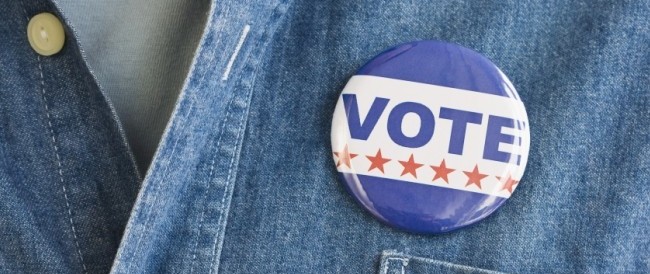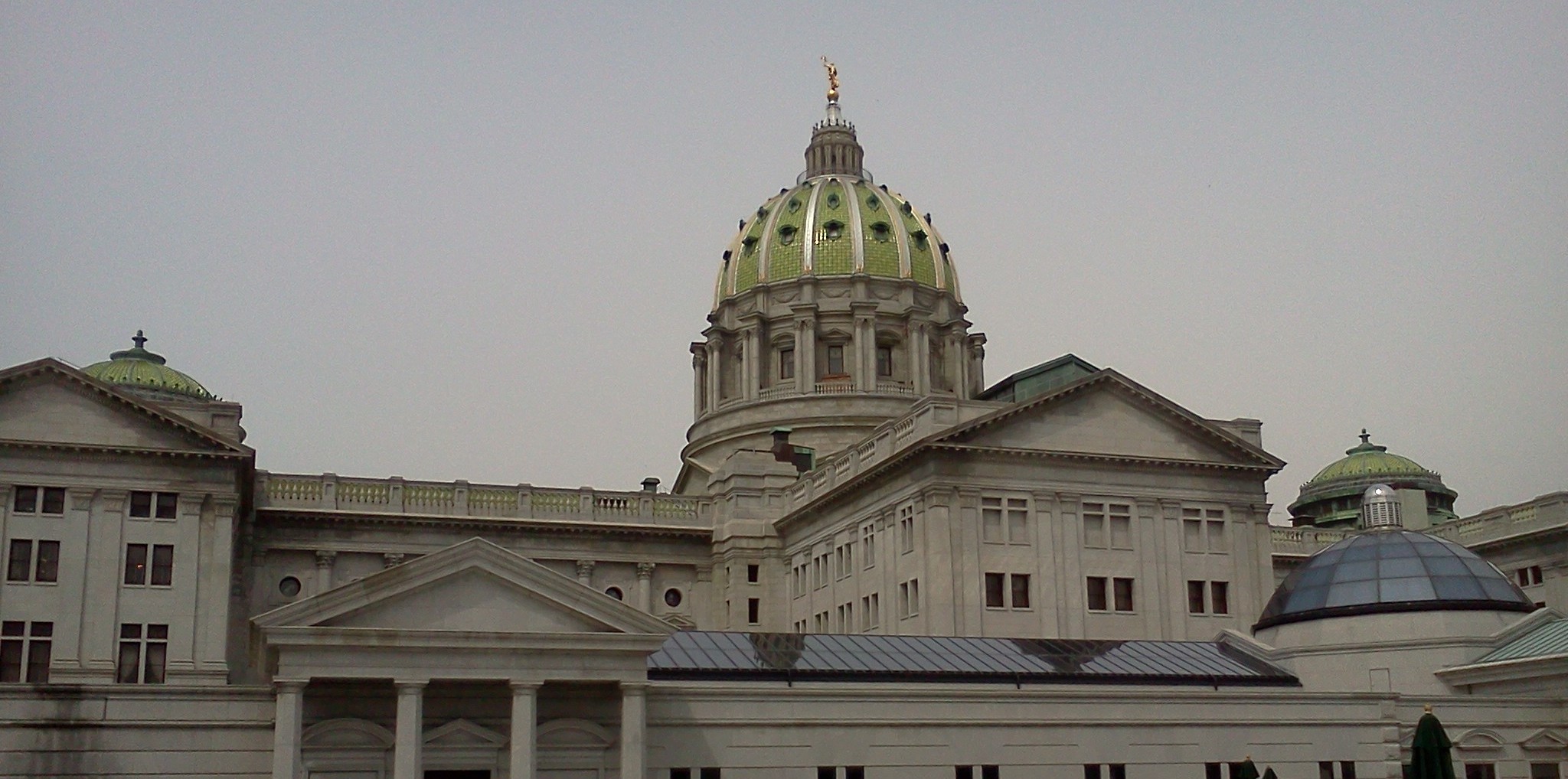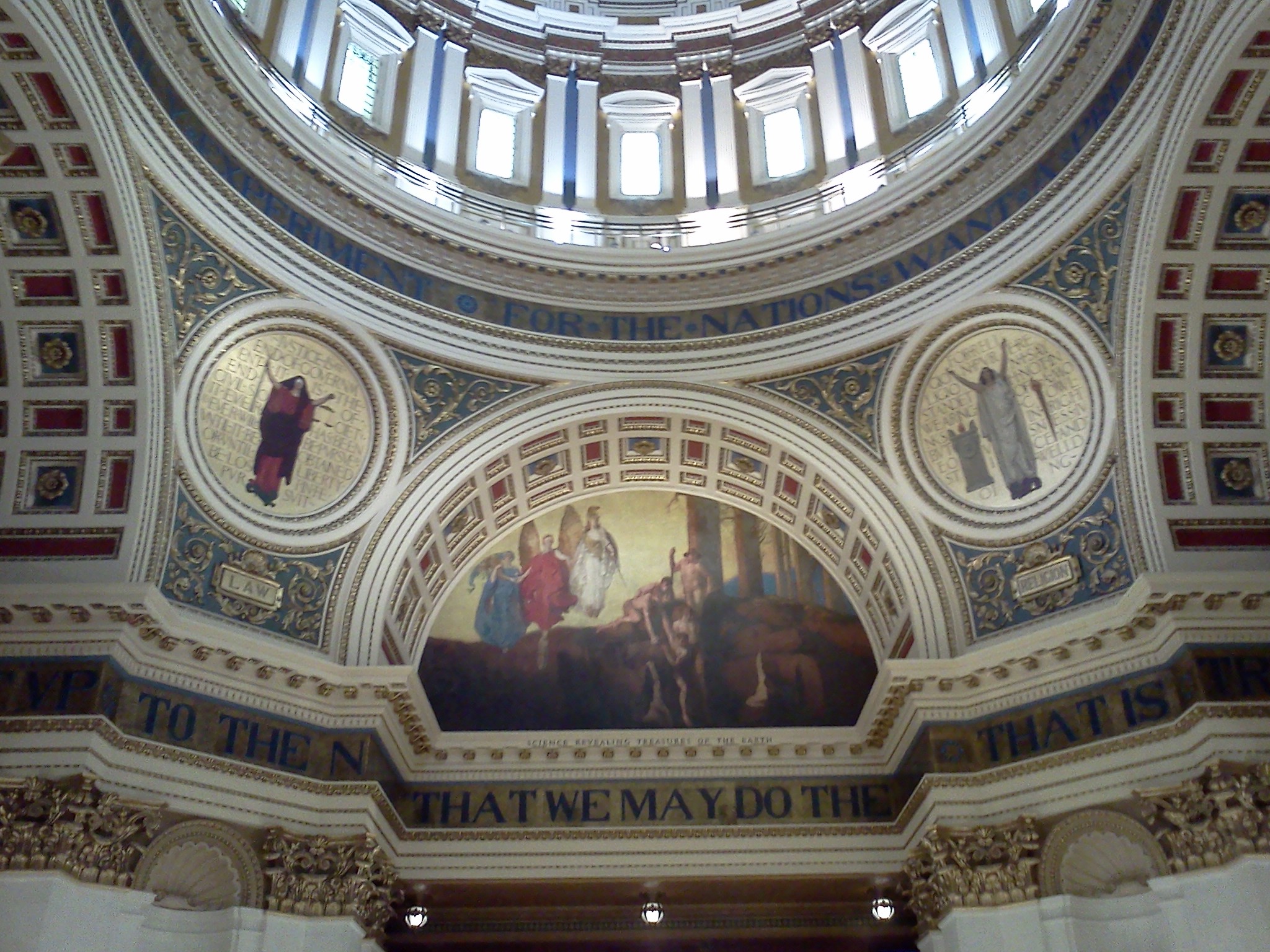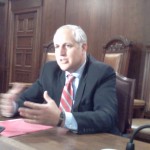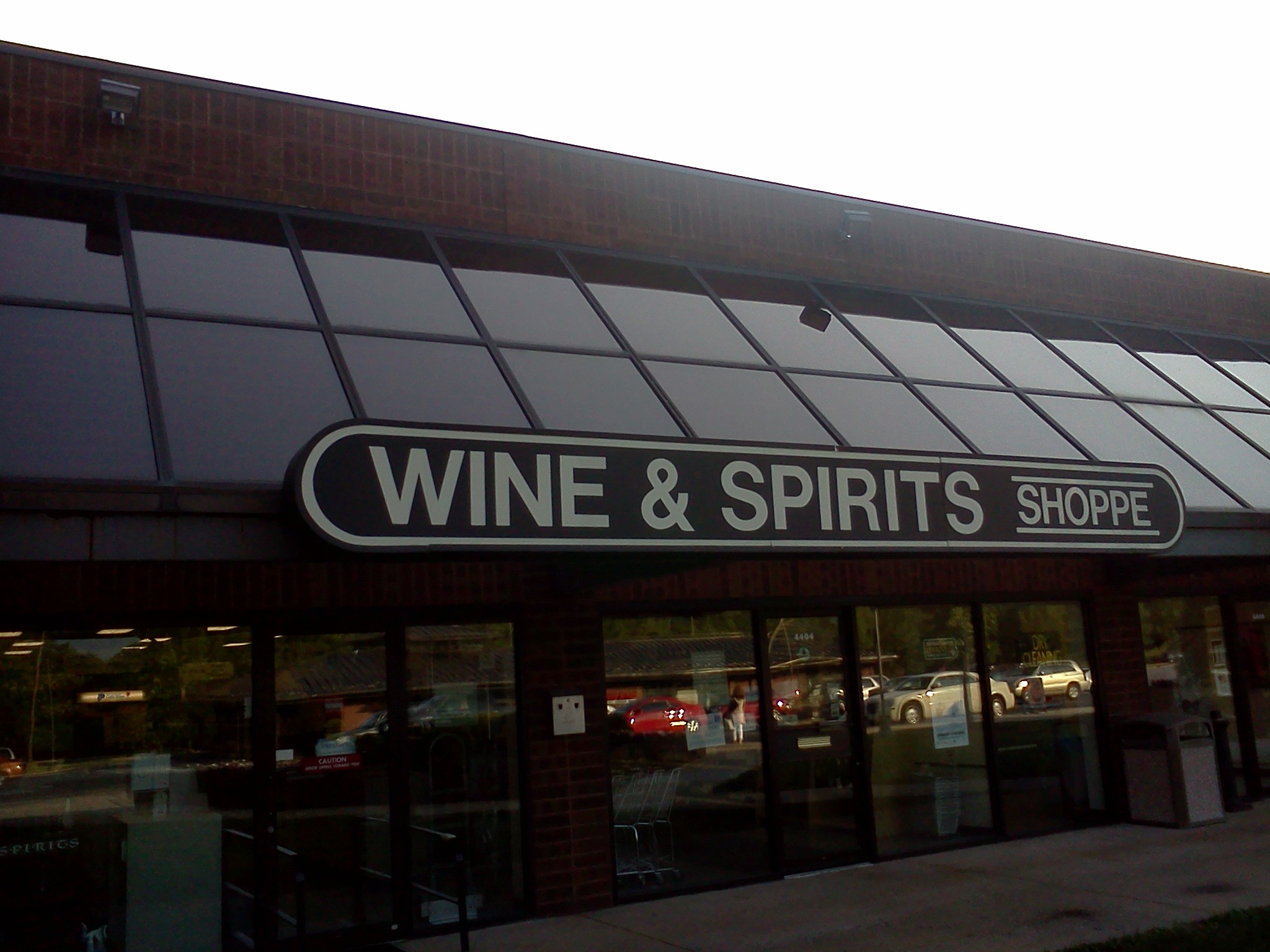Posts
Many Choices in New Hampshire Primary
/in News /by PAMattersMitt Romney and Rick Santorum may be getting most of the ink in the buildup to next week’s New Hampshire primary, but theirs are just two of the 30-names that will appear on the Granite State’s GOP presidential primary ballot.
Ballot access is relatively easy in New Hampshire, where citizen candidates like Bear Betzler can find themselves doing much more than participating in democracy. Betzler, a management consultant from Philadelphia, is the sixth name listed on New Hampshire’s Republican primary ballot. “My name’s in just as big of letters as Mitt Romney’s,” Betzler tells us. “The box that you get to cross off is just as big as Rick Santorum’s or anybody else’s.”
Betzler believes Americans are fed up with partisan bickering in Washington, and he wants to set aside divisive social issues to focus on the nation’s massive debt. “You don’t run into anyone who says this isn’t a problem. So we all agree on it, but no one is working on practical solutions.”
No matter how many votes Betzler tallies on Tuesday, he already views the experience as a success, and points out New Hampshire residents welcome lesser known candidates with open arms.
Betzler isn’t the only Pennsylvanian taking advantage of the opportunity to have his voice heard on a national stage. Longtime state Senator Stewart Greenleaf (R-Bucks/Montgomery) will also compete in next Tuesday’s New Hampshire GOP presidential primary. Greenleaf’s been a state lawmaker since 1977.
Governor Tom Corbett on the GOP Presidential field
/in Ask the Governor, Media, News, Video /by PAMattersBills Drafted in Response to Massive Floods
/in News /by PAMatters
As recent flooding reached historic proportions in many communities, lawmakers are preparing bills to augment federal disaster aid and speed the recovery process. “State government will never be the ultimate insurer,” says State Senator Lisa Baker (R-Luzerne). “But when disaster strikes, it is a core function of government to protect lives & property, to restore public safety & infrastructure, and to provide victims the necessities of life when the emergency robs them of everything they need and value,”
Officials say the seven-bill, bipartisan package should be ready soon, and they expect quick action once it’s been formally introduced.
One bill would create a special account to provide additional state grant money to eligible flood victims who’ve maxed out their federal aid.
Another bill would authorize $250-million dollars in bonds to pay to repair flood damaged roads and bridges. “We will be getting, hopefully, a tremendous amount of federal assistance for the hundreds – maybe thousands – of roads and bridges that have been damaged, but normally the federal government provides about 75% of the funding,” says State Senator John Gordner (R-Columbia), who’s spearheading the effort.
Three bills in the package would authorize county-by-county lists of flood damaged roads, bridges and flood control systems, adding them to the state’s capital budget.
Local taxing bodies would have the ability to abate the property taxes on condemned structures, under another bill. The final bill of the package would allow for educational waivers for things like the 180-instructional day mandate. “I can tell you that I have at least one school district in my senatorial district that as of today still is not back in school,” Gordner explains. “That is the Benton Area School District in Columbia County.”
In addition to Senators Gordner and Baker, John Yudichak (D-Luzerne), Gene Yaw (R-Lycoming) and John Blake (D-Lackawanna) are sponsoring parts of the package of bills. The sponsors have not yet put a price tag on the legislation, but the special account for flood victims would come out of the budget surplus from fiscal year 2010/2011.
PA Abuzz Over Possible Electoral Changes
/in News /by PAMattersThe Constitution allows each state the ability to determine how its electors are assigned in presidential elections. In 2012, Pennsylvania will have 20-electoral votes. How they are awarded… is now the subject of debate. Under the current system, all 20 would be awarded to the winner of PA’s popular vote, but some believe there is a better way to do it.
State Senate Republican Leader Dominic Pileggi (R-Delaware) is backing a plan that would divvy up the votes based on election results in each of the state’s 18 congressional districts, plus two votes being awarded to the winner of PA’s popular vote. “This proposal is designed to more closely align Pennsylvania’s Electoral College vote with the popular vote in the state,” says Pileggi spokesman Erik Arneson.
Governor Tom Corbett indicated his support for the plan on Radio PA’s monthly Ask the Governor program. “I think it more closely reflects the vote across the state of Pennsylvania,” Corbett says, “Many people complain about the electoral process and that people are disenfranchised. This makes the state much more competitive across the entire state.”
This is the first time such a plan has been offered in Pennsylvania, and Franklin & Marshall College political science professor Terry Madonna believes there would be consequences. For instance, he believes Pennsylvania’s relevance – in practical terms – would be reduced to 5 – 7 electoral votes. “That that means that other states, with larger electoral votes, that are competitive, will get far more attention,” Madonna says, adding that this system would not have changed the outcome of any election in modern history, had Pennsylvania been using it.
Pennsylvania and 47 other states currently follow the winner-take-all model; only Nebraska and Maine follow the model being put forth by the Senate Republican Leader.
As Democrats have won Pennsylvania in each of the past five presidential elections, many Democrats are calling it a political power grab. “This is exactly the behavior that is turning the public against politicians,” Pennsylvania Democratic Party chairman Jim Burn said in a statement.
But Erik Arneson points out that the new system would actually benefit President Barack Obama, if a Republican takes Pennsylvania in 2012, as some pundits predict. While telling us that it’s about fairness, not politics, Arneson also points out that the plan has been criticized from both sides of the aisle.
Senator Pileggi is currently circulating a co-sponsorship memo. The bill should be officially introduced in a few weeks, and they’ve already requested a committee hearing. After the hearing, Arneson says, they will decide the next course of action.
Sen. Toomey, Protesters Talking Jobs
/in News /by PAMattersA team of unemployed workers and supporters is traveling the state to stage protests outside of US Senator Pat Toomey’s regional offices. “I was let go for two reasons. They happened to be corporate greed and the outsourcing of jobs,” says Dan Haney of Philadelphia. The protesters say Toomey needs to focus his attention on creating jobs for the middle class.
As the protests are taking place in his home state, Toomey spoke to the nation in the weekly Republican Address. Its focus: jobs. “Every day small business owners, job creators and entrepreneurs are bombarded with new regulations and higher costs, discouraging these employers from expanding their businesses and higher additional workers,” Toomey said. In the five minute speech, Toomey expressed optimism while blaming the nation’s 9.1% unemployment rate, in part, on job-killing federal regulations
But the protesters say politicians like Toomey focus too much on CEOs and not enough of middle class families. “They want to balance the budget on the working class’ back, and let corporations and CEOs and millionaires get more tax breaks, and put more money in their pocket,” Haney said in a telephone interview from an event outside of the Harrisburg federal building (pictured above).
Toomey has recently been tapped for the Joint Select Committee on Deficit Reduction (super committee). In the GOP Address, Toomey said he will work to produce a plan that cuts government spending and creates and environment where entrepreneurs can thrive.
Capitol Hearing Kicks-Off Privatization Debate
/in News /by PAMattersHouse Majority Leader Mike Turzai (R-Allegheny) was the only testifier on the Liquor Control Committee’s agenda Thursday, but Chairman John Taylor (R-Philadelphia) stressed that this hearing was the first of many. “The goal of Chairman Santoni and I is to get the information on the table, and have everybody have the opportunity to have their say,” Taylor said.
The committee is expected to receive additional testimony during a series of statewide hearings. Taylor said each additional hearing will likely focus on one particular area of the privatization debate, such as fiscal impact, consumer impact and/or social impact.
Minority Chairman Dante Santoni (D-Berks) welcomed the public vetting process. “I expect that what we will learn is that our current system, with some changes under the umbrella of the PLCB, can address the concerns of most Pennsylvanians,” Santoni said, suggesting that the numbers behind privatization wouldn’t add up in the end.
Rep. Turzai says the auctioning off of 1,250 retail liquor licenses would generate significant upfront revenue, but emphasized that it’s time to move into the 21st century. “Should the entity promoting wine & spirits be the same entity that polices those sales? Doesn’t that inherently constitute a conflict of interest?”
Turzai went into great detail on his bill, which is reportedly 100-pages long, though it wasn’t publicly posted as of Wednesday afternoon. Union members – who oppose privatization – were well represented in the capitol hearing room, just as they were at Rep. Turzai’s news conference earlier this month.
Back in June, the Quinnipiac University Polling Institute asked Pennsylvania voters about the liquor store privatization issue, in the context of balancing the state budget. 69% of Pennsylvanians supported the idea.
The Race for the Republican Nomination
/in News /by PAMattersIt’s a wide-open field, according to Kiron Skinner, professor of international relations at Carnegie Mellon University. “We haven’t seen a contest quite like this in a very long time. Usually we have a sense of the frontrunners very early on in the process. We do not, right now, have that sense,” says Skinner, who spoke to Radio PA from California, where she is also a research fellow at the Hoover Institution at Stanford. While former Massachusetts Governor Mitt Romney has the name recognition and the head start in the polls, Skinner wouldn’t put her money on Romney right now.

Professor Skinner says Rick Santorum is trying to carve out space in a crowded field of social conservative candidates.
Some of the Republicans racking up the best poll numbers aren’t even official candidates yet. For instance, former Alaska Governor Sarah Palin nets 12% in the July Quinnipiac National Poll. Likewise, Texas Governor Rick Perry received 10%. “[Perry] has been successful, from the standpoint of many in the party, as governor. He is not running up big deficits, and in fact it’s a better economy in Texas than most states,” Skinner says.
The biggest storyline leading up to 2012: “Who can create jobs?” Skinner says many think Texas Governor Rick Perry is the one. “It’s a big state that’s creating jobs faster and more permanently than other states, and has an economy that’s growing,” Skinner explains.
While Republicans do view President Barack Obama as vulnerable in 2012, Skinner says that’s not the only reason for such a large GOP presidential field. She says many candidates are rushing to fill the void in a Republican Party that’s perceived to be weak. “There’s been no one since Reagan who’s been able to bring a broad coalition of Republicans together, to win elections by a landslide as Reagan did in ’80 and ’84.”
Bill Would Get Pennsylvania Out of the Booze Business
/in News /by PAMatters
Spirits are high as House Majority Leader Mike Turzai (R-Allegheny) mounts a new campaign to privatize Pennsylvania’s liquor stores. “We should not be in the business of pushing alcohol sales… while at the same time being the agency that is charged with law enforcement,” Turzai says, referring to the current control system. In fact, Pennsylvania and Utah are the only two states that exercise complete control over their liquor systems.
The Turzai plan (HB 11) would auction off 1,250 retail liquor licenses to the highest responsible bidders in the private sector. 750 of those licenses would be for outlets with at least 15,000 square feet of retail space, while the remaining 500 licenses would be for smaller retailers. “We will absolutely maintain the tax revenue structure for the General Fund,” Turzai told reporters at a capitol news conference. “In addition, with the auctioning of the retail licenses and the sale of the wholesale licenses, we will absolutely make an upfront value.”
Rep. Turzai estimates that upfront windfall to be up to $2-billion dollars. The bill does not discuss how to spend that cash. Turzai says there will need to be a policy discussion on that, but points to state pension obligations and transportation infrastructure as two possibilities.
The Pennsylvania Liquor Control Board (PLCB) currently operates about 644- wine & spirits stores. All bottles receive a 30% markup and a handling fee, on top of the 18% Johnstown Flood Tax. The Turzai plan would replace those levies with a “Gallonage Tax.” Though – as alluded to in the earlier quote – Turzai believes the state will still collect $400 million dollars in taxes, each year.
Governor Tom Corbett does not believe Pennsylvania should be in the business of selling liquor and wine. He made that point clear when speaking to reporters on Tuesday. But, he had not yet seen Turzai’s proposal. “If we’re not to be in the business, how do we get out of it and where does it go, and where does the state get revenue. That all has to be taken into consideration,” Corbett said.
Privatization supporters will tell you that Pennsylvania consumers would benefit from the competition. They say privatization would lead to better selection, prices and convenience. But, opinions are mixed.
One of the biggest critics of privatization is Wendell Young, president of the United Food and Commercial Workers (UFCW) Local 1776, which represents about 3,500 employees at Pennsylvania’s wine & spirits stores. Young believes privatization would be a loss from day one. “Pennsylvanians end up getting hosed with the cost of privatization, while the ones that buy the licenses end up with the profit that the state currently enjoys,” Young has said. He contends that Pennsylvania has the best of both worlds right now: low consumption and high returns. Young also believes that privatization would cost 5,000 wine & spirits store workers their jobs.
How About Another Round of Liquor Store Privatization Debate?
/in News /by PAMattersDebate over state control of wine & spirits stores could be on tap, this fall, at the capitol. House Majority Leader Mike Turzai (R-Allegheny) is already seeking co-sponsors, and could unveil his latest bill soon. Supporters say Pennsylvania shouldn’t be in the booze business in the first place. In fact, Pennsylvania and Utah are the only two states that maintain complete control over their alcohol and wine systems. “That points to how antiquated, absurd and un-American this issue really is,” says Jay Ostrich, director of public affairs for the Commonwealth Foundation.
Ostrich says Pennsylvania consumers would be better off. “They’re seeking better choices and better prices, more economic and personal freedom. We believe liquor freedom, through privatization, will certainly give them just that,” he tells us.
But opponents say privatization doesn’t make financial or social sense. “The current system raises a lot of money for the state. There’s a lot of very strong evidence that we get more, because of the state’s monopoly of wine & spirits distribution, than states where it’s privatized,” says Stephen Herzenberg, executive director of the Keystone Research Center. Herzenberg points to research that suggests privatization would lead to more excessive consumption of alcohol. “The way we do it here helps reduce alcohol abuse and related social problems,” he says.
Herzenberg also stresses that no reliable estimate exists for the up-front revenue the state would receive if its 644 liquor stores were privatized.
The bill that Rep. Mike Turzai introduced last year would have created a new tax and fee structure. It would have started by nixing the Pennsylvania Liquor Control Board’s 30% markup and the 18% Johnstown Flood Tax. His plan called for a new “gallonage tax” instead. Full details of this year’s proposal aren’t yet available, but Turzai does have two new developments working in his favor: 1) his caucus is now in the majority, and 2) new Governor Tom Corbett does not believe the state should be in the business of selling liquor and wine.
The Pennsylvania Liquor Control Board wouldn’t be completely out of the picture, if wine & spirits stores were privatized. “We have an obligation to regulate and tax, but we don’t have to own and operate,” Turzai said in an interview with Radio PA this spring. Meanwhile, the PLCB reported record sales for the fiscal year that ended on June 30th. Nearly $2-billion dollars in sales brought in nearly $500-million dollars worth of tax revenue and profit transfers for the state.
Welcome to PAMatters.com, a new source for news and commentary from Pennsylvania’s capital. In addition to video, audio and pictures from the stories and events that affect YOU, you’ll also get some behind-the-scenes analysis via blogs from our award-winning staff of journalists.



